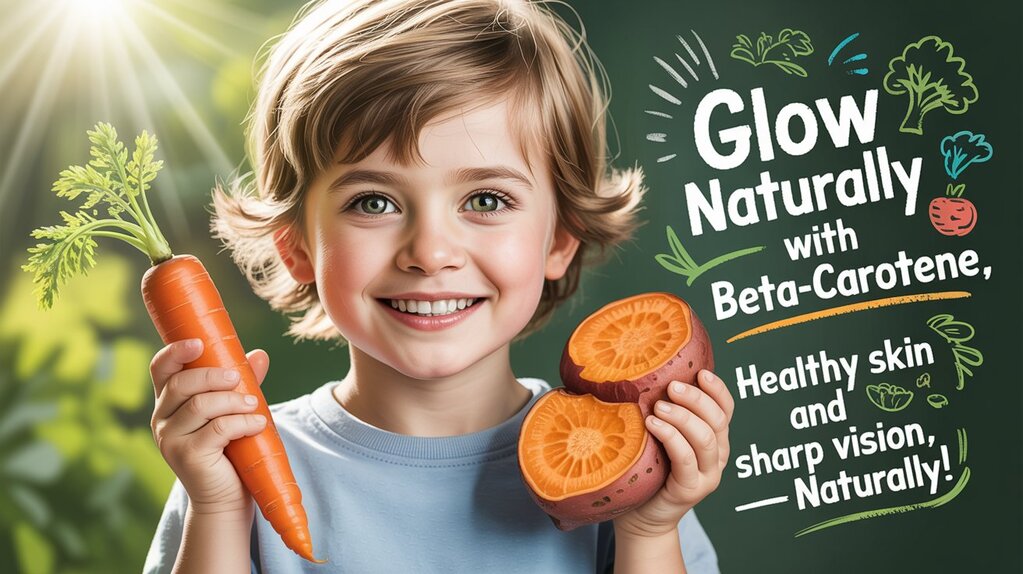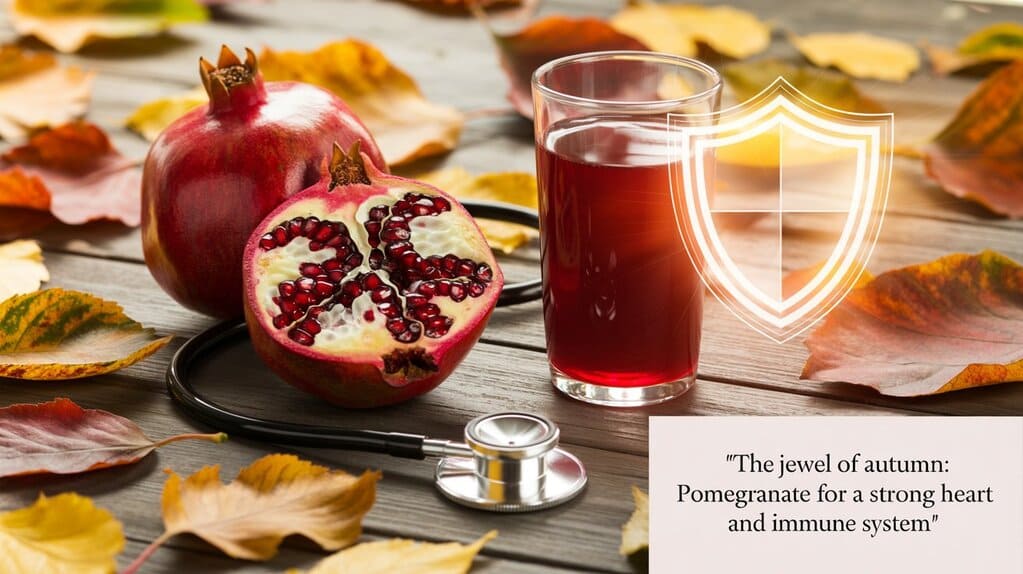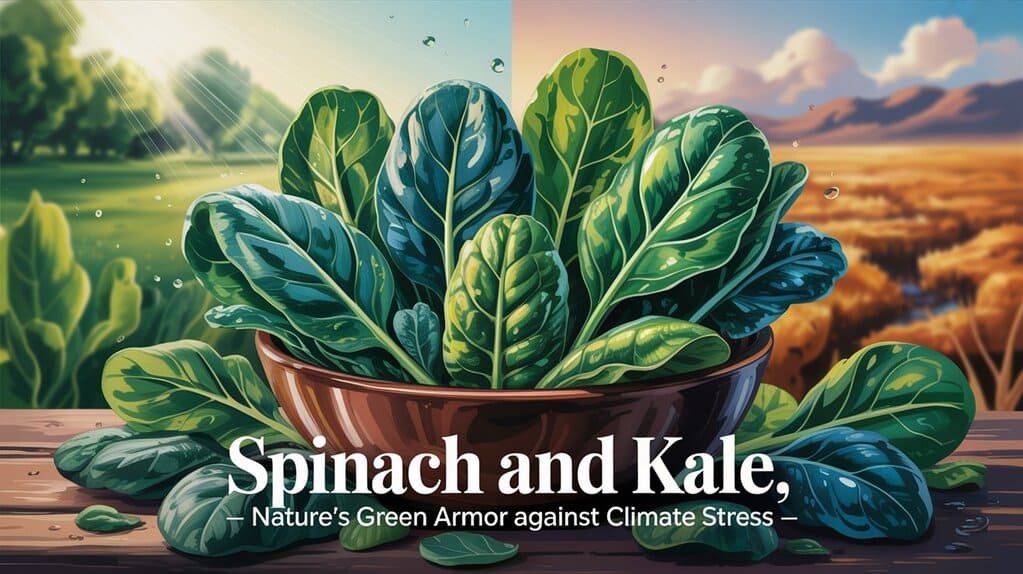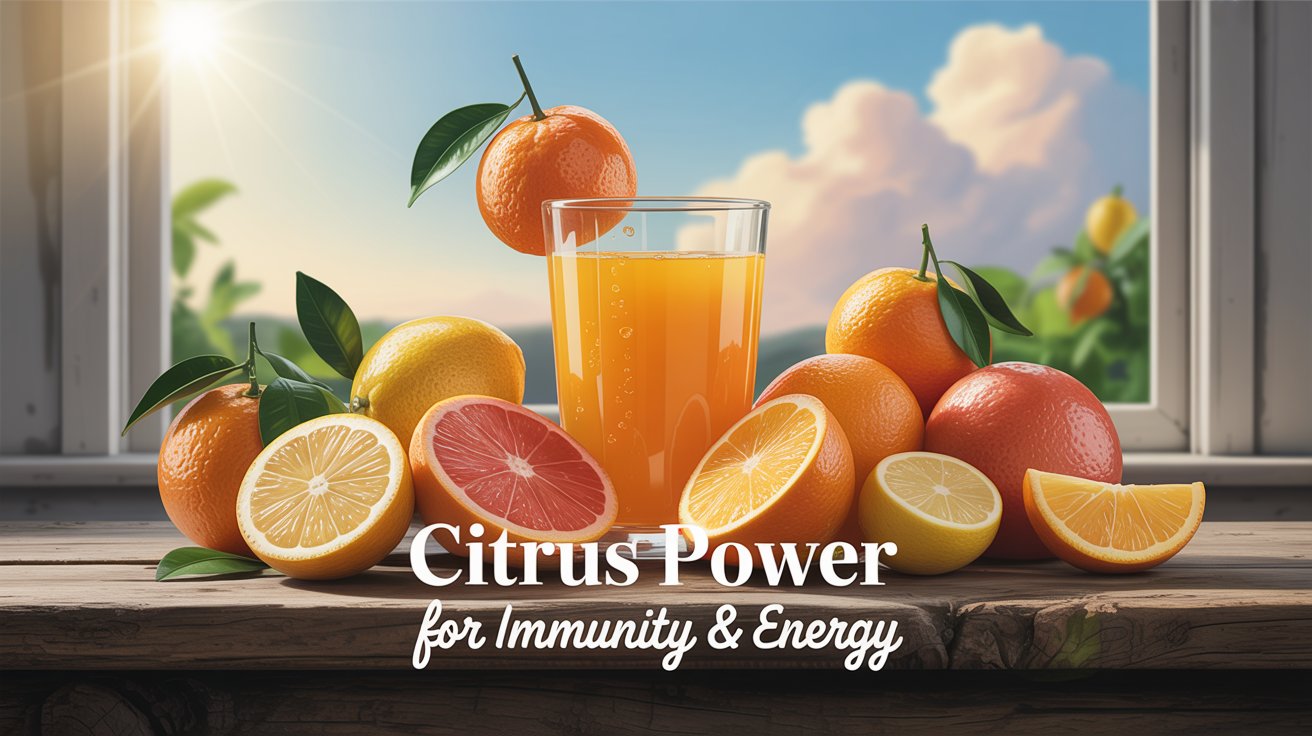
Introduction
As temperatures rise and appetites shift towards lighter meals, summer salads become a go-to choice for health-conscious individuals. Packed with fresh vegetables, fruits, nuts, and lean proteins, these nutrient-rich salads are not only refreshing but also offer essential vitamins, minerals, antioxidants, and hydrating properties vital for well-being during the hot months.
This article explores the most popular nutrient-dense salads that support hydration, digestion, immunity, and energy in summer. We’ll also delve into the nutritional benefits of their ingredients, support our findings with scientific studies, and recommend combinations based on recent research from reputable sources like the National Institutes of Health (NIH), Harvard Medical School, and Wikipedia.

Why Nutrient-Rich Salads Are Essential in Summer
During summer, the body tends to lose electrolytes and fluids due to increased perspiration. Nutrient-rich salads replenish these losses through ingredients that are naturally hydrating and rich in essential micronutrients like potassium, magnesium, vitamin C, and fiber.
Key Health Benefits of Summer Salads:
| Nutrient | Function | Common Sources in Salads |
|---|---|---|
| Vitamin C | Boosts immunity, supports skin health | Citrus, bell peppers, kale, strawberries |
| Fiber | Aids digestion and satiety | Leafy greens, carrots, legumes, whole grains |
| Antioxidants | Fights oxidative stress and inflammation | Tomatoes, berries, nuts, spinach |
| Water | Hydrates the body and supports cellular function | Cucumber, lettuce, watermelon, celery |
| Potassium | Regulates blood pressure and fluid balance | Avocados, bananas, tomatoes, spinach |
According to a 2023 study published in the journal Nutrients, diets rich in raw vegetables and fruits during summer are associated with lower inflammation, better weight control, and enhanced hydration. Source:[NutrientsJournal](https://www.mdpi.com/journal/nutrients)Source: [Nutrients Journal](https://www.mdpi.com/journal/nutrients)Source:[NutrientsJournal](https://www.mdpi.com/journal/nutrients)
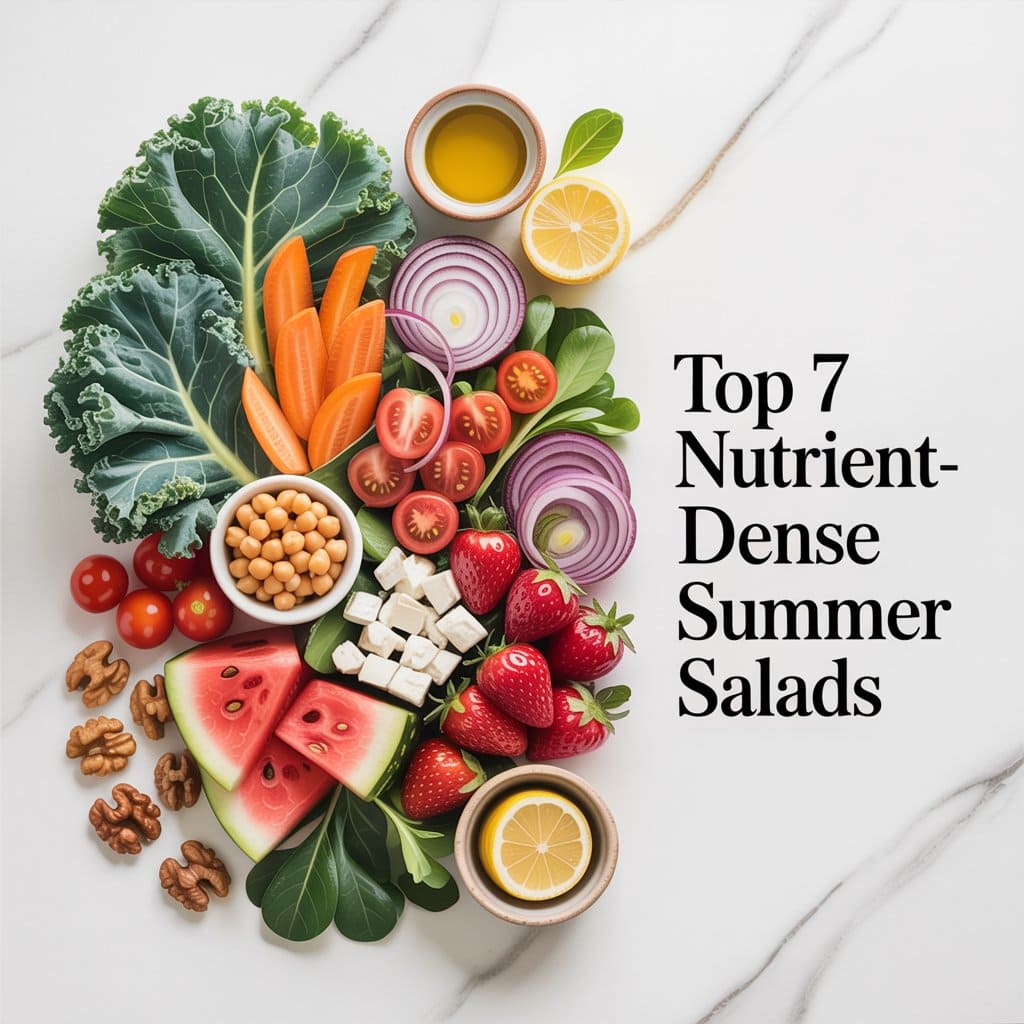
Top 7 Nutrient-Rich Salads for Summer
1. Mediterranean Chickpea Salad
A staple in many Mediterranean countries, this salad combines chickpeas, cucumbers, tomatoes, red onion, parsley, and olive oil.
Nutritional Highlights:
- Chickpeas: High in plant-based protein, iron, and fiber.
- Olive oil: A source of healthy monounsaturated fats that reduce inflammation.
- Tomatoes: Rich in lycopene, a powerful antioxidant.
According to a 2024 study in the British Journal of Nutrition, the Mediterranean diet—including salads like this—lowers the risk of cardiovascular disease by up to 30%.
2. Kale and Quinoa Power Salad
This superfood salad is rich in fiber, protein, and antioxidants. Ingredients include quinoa, kale, carrots, cherry tomatoes, and a lemon-tahini dressing.
Nutritional Highlights:
- Kale: Contains high levels of vitamin K, vitamin A, and calcium.
- Quinoa: A gluten-free grain with complete protein and iron.
- Carrots: Provide beta-carotene, important for skin protection from sun damage.
A 2022 Harvard Medical School article points out that quinoa-based meals enhance satiety and blood sugar control.
3. Watermelon and Feta Salad
A refreshing summer favorite, this salad includes watermelon cubes, feta cheese, mint, and a drizzle of balsamic glaze.
Nutritional Highlights:
- Watermelon: 92% water content, rich in vitamin C and citrulline for muscle recovery.
- Feta: Source of calcium and protein.
- Mint: Aids digestion and adds a cooling effect.
As per Mayo Clinic, watermelon helps maintain hydration and supports heart health due to its antioxidant profile.
4. Spinach and Strawberry Salad
Combining baby spinach, sliced strawberries, walnuts, and goat cheese, this salad is both nutritious and delicious.
Nutritional Highlights:
- Spinach: Provides folate, iron, and magnesium.
- Strawberries: Packed with vitamin C and polyphenols.
- Walnuts: Source of omega-3 fatty acids for brain health.
A 2023 publication in the Journal of Agricultural and Food Chemistry confirms that strawberries improve vascular function and reduce oxidative stress.
5. Asian Cabbage Slaw
Made with shredded red and green cabbage, carrots, edamame, sesame seeds, and ginger-soy dressing, this salad brings crunch and health in one bowl.
Nutritional Highlights:
- Cabbage: Rich in glucosinolates, which support liver detoxification.
- Edamame: High in plant protein and isoflavones that promote hormone balance.
- Sesame seeds: Loaded with calcium and magnesium.
According to WebMD, cruciferous vegetables like cabbage may reduce cancer risk and support immune function.
6. Avocado and Black Bean Salad
This protein-rich salad includes black beans, corn, avocado, lime, and cilantro—perfect for a Mexican-inspired summer dish.
Nutritional Highlights:
- Avocado: Excellent source of healthy fats, fiber, and potassium.
- Black beans: Boost iron, magnesium, and digestive health.
- Lime: Adds vitamin C and helps absorb iron from plant foods.
The American Journal of Clinical Nutrition (2024) highlights how regular avocado intake improves heart and gut health.
7. Greek Salad
An all-time classic made with cucumbers, red onions, olives, tomatoes, and feta cheese, seasoned with oregano and olive oil.
Nutritional Highlights:
- Olives and olive oil: Contain oleic acid, linked to reduced inflammation.
- Tomatoes: Offer lycopene, beneficial for skin and heart protection.
- Oregano: Possesses antibacterial and anti-inflammatory properties.
Wikipedia notes that Greek salad is not only traditional but considered a model for balanced summer nutrition in Mediterranean cuisine.

Best Practices for Making Summer Salads Healthier
To maximize the health benefits of your summer salads:
- Use seasonal produce: They’re fresher, cheaper, and more nutrient-dense.
- Limit processed dressings: Opt for lemon juice, olive oil, balsamic vinegar, or Greek yogurt instead.
- Add protein: Include sources like legumes, tofu, grilled chicken, or eggs to increase satiety.
- Watch sodium: Limit high-sodium ingredients like pickles or salty cheeses.
- Eat a rainbow: Combine colorful fruits and vegetables to ensure a variety of antioxidants.
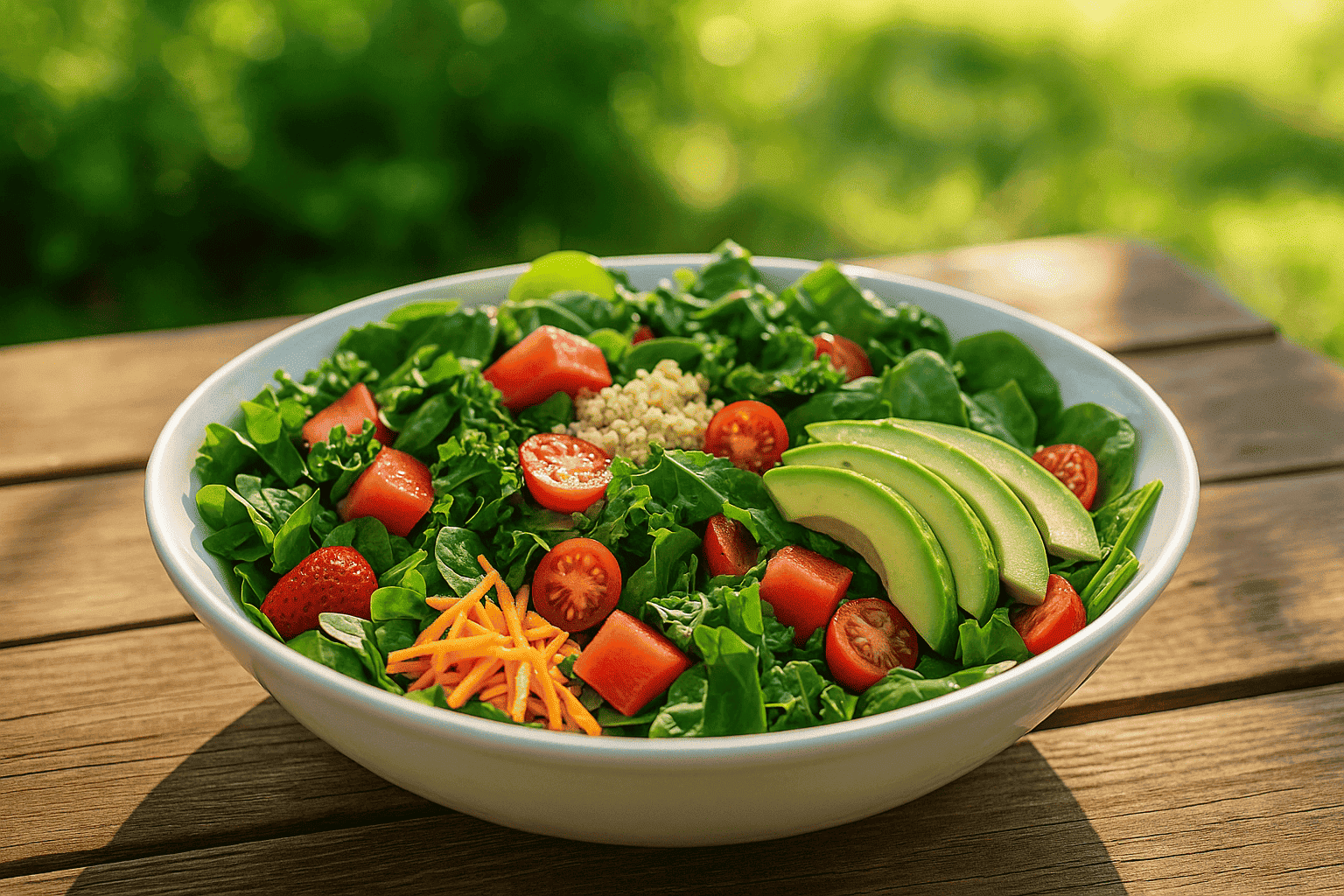
Conclusion
Summer salads are far more than just light meals—they are vibrant powerhouses packed with vitamins, hydration, antioxidants, and essential nutrients. By selecting the right combination of fresh, seasonal ingredients, you can create meals that nourish your body, aid digestion, protect your skin, and keep you energized during hot days.
Whether it’s the Mediterranean Chickpea Salad, the refreshing Watermelon and Feta mix, or the hearty Kale and Quinoa Power Bowl, there’s a nutrient-rich summer salad for every palate and need.
Incorporating these salads into your diet is a delicious and practical way to enhance your overall health, maintain optimal hydration, and support a balanced diet.
References
- Harvard Medical School. (2022). Superfoods for summer. health.harvard.edu
- National Institutes of Health. (2023). Vegetable-rich diets and cardiovascular outcomes.
- Mayo Clinic. (2024). The hydration benefits of watermelon.
- WebMD. (2024). Cruciferous vegetables and cancer prevention.
- Wikipedia. (2025). Greek Salad. https://en.wikipedia.org/wiki/Greek_salad
- Nutrients Journal. (2023). Seasonal diets and inflammation.
- Journal of Agricultural and Food Chemistry. (2023). Strawberries and vascular function.
- The American Journal of Clinical Nutrition. (2024). Impact of avocado on gut and heart health.

